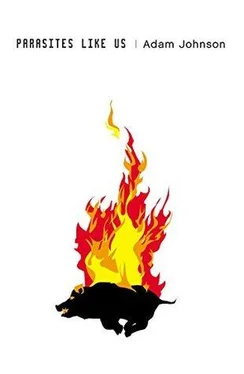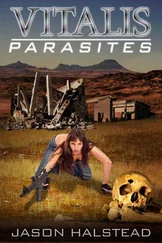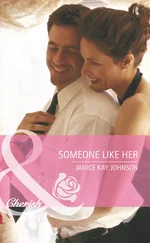I took my glasses off and folded them. I rubbed my temples a moment.
“Okay,” I said. “Okay.”
“Wow,” Eggers said. “We’re joining the elect few.”
“Yeah,” Trudy added, “we’re making history.”
“Here you go, then,” Eggers said, handing me the spear.
“Me? Wait a minute.”
Eggers said, “It’s your Clovis point, Dr. Hannah.”
“I don’t know how to throw a spear,” I told him. “You’re the one living in the Stone Age.”
“That’s right,” Eggers said. “A pig gets killed with a twelve-thousand-year-old spear. Who do you think they’re going to suspect? Yes, perhaps the authorities might consider the Paleolith living in the park.”
“He’s got a point,” Trudy said.
“What was with the calisthenics, then?”
Eggers looked shocked. “We’re all going to be running in a couple minutes.”
I hefted the spear and watched as Sir Oinks A Lot took a lazy turn around the pen, probably looking for a newer, more comfortable place to sleep.
“This thing’s heavy,” I said.
“Choke up on your grip,” Trudy told me.
Eggers pointed at the pig. “Aim just behind the shoulder blade. That’s home to lung, liver, and heart. You’ll get at least two out of three.”
I took an extra puff off my inhaler, for luck, then backed up a couple of steps, then a couple more. I don’t know why, but I scratched the soles of my shoes, one at a time, on the asphalt. I wiped a hand on my pants. The pig started to circle, the way a dog would before lying down, and I started to time my throw.
“Don’t miss, Dr. Hannah,” Trudy said. “That point’s irreplaceable.”
I ran at the pen and thrust my arm high, but my arm wouldn’t let go.
I stood there with the spear still in my hand.
The truth came to me cold and swift: I was no hunter.
“Oh, give it here,” Trudy said, loosening up her shoulders.
“Give the woman the spear,” Eggers said. “She holds an all-military-school record in track and field.”
“Trudy,” I said, “we can’t ask you to throw this spear. I’m a white male professor, and you, you know, you’re an African American female student.”
“Oh, Dr. Hannah,” Trudy said, “you’re so cute.”
She took the spear from my flaccid grip, and Eggers winked at me.
Trudy hefted the weapon, felt its balance point, then raised it high.
“What’s the bumper sticker?” she asked. “‘You can have my spear when you pry it from my cold, dead hands.’”
The pig cocked its head curiously.
Then it happened. Trudy rotated her body and, drawing back, charged a throw that began in the ball of her foot. The leg followed, the hip lifting, rotating the torso around so the arm whipped like a sling. The spear launched, and the follow-through was complete enough that it left her facing sideways, hopping on one foot.
Almost as quickly as it was thrown, the spear crossed the pen and landed with a great thuk that opened a gaping, pleated wound, from which escaped a gurgly hiss as the lung pushed and pulled air through the puncture. The handle of the spear bobbed with the breath of the hog, and with every little movement, the blade walked itself deeper into the cavity of the chest. The pig let out one faint whine before its front legs crossed, almost daintily, and it went down, rolling to its side so that its final breaths sent up mists of blood that speckled the wall a steaming pink.
Eggers looked stunned. He climbed over the rail and walked cautiously to the pig. He leaned over it. “Holy shit,” he said.
“Wait,” I called. At any moment, that hog could jump up and slay us all. If one thing was constant in the history of the world, it was the notorious danger of pigs. They were the bane of early Mesopotamia, and in African folklore there is no more dangerous beast. Even the Clovis could not handle them. The Clovis eradicated the American lion, the saber-toothed tiger, and the dire wolf, but the wild boar was one of the few animals to live through that age of eradication.
Trudy joined Eggers. She was still shaking out her arm from the throw as she approached the pig. She crouched above a pool of blood gelling against the cold asphalt. She reached for it.
“Don’t,” I murmured. “Think of the parasites, the trichinosis, the bloodworms.”
Trudy placed her palm in the blood, then, dripping, showed it to me.
“This is the first art,” she said. “This is the original ink.”
On the wall of the shed, Trudy drew a horizon line in red. Below it, she fashioned a circle, the sun of the underworld. Above the line, she used her fingers to make a set of antlers, pointing down. I recognized the symbol, haunting and primordial. She drove around Parkton with it painted on the black hood of her beater GTO.
Eggers pulled a flake from his game bag and cut the spear point free of the shaft. He brought it to me and placed it bloody in my hands, still warm from the pig.
“Here you go, Dr. Hannah,” he said. “One Clovis point, as promised.”
Then Trudy came toward me, face flushed from the cold, hands red, that great staticky blue light of death around her, and I thought, Yes. Perhaps my father’s rakish thinking had infected me, but my hands were shaking for her.
“Are you ready?” she asked, and when I nodded, we all started running.
* * *
In bed that night, I woke to a roar from the Missouri as a shearing expanse of ice broke away. It sent a wake underneath the whole ice sheet, so that, when the wave reached the shore, you could hear fifty-five-gallon drums leap from the frozen grip of the river as, one by one, everyone’s docks cracked free. I knew a great ice raft, large as a lecture hall, was spinning its way downstream.
I sat up in bed, and slowly, by starlight, began to make out the dark tendrils of all the silent houseplants that hung in my room. I checked my bedside table, and, sure enough, there was the stained Clovis point from earlier, right where I’d set it — beside a plaster cast of my mother’s leg, removed just before she left us for good. Though I hadn’t heard from her in thirty years, I felt pretty confident that, with the cast and maybe an X-ray of the break, I’d be able to identify my mother if I ever came across her.
Often when I couldn’t sleep, I’d pick up that knee-high cast and trace the shape of my mother’s calf, feel the shadows left by the fine bones in her feet, but tonight I reached for the Clovis point. The quartz was smooth and warm in the dark, and instead of its conjuring in my mind the story of a people older than civilization, I thought of Trudy. How natural this point had seemed in her hand, and with what kinship did she speak of its fashioner. Trudy seemed to know its song, and the shameful arousal I felt for her, for one of my students, as I replayed the way she launched that spear was eclipsed only by the horror of where it had landed.
Did the Clovis people know the glaciers were on the move? Did the dinosaurs comprehend the impending comet? Janis didn’t know what the universe had in store. I heard the ice again, and imagined white rafts slowly floating down thousands of miles of river, a history of ice, and on these barges in my mind, I saw things and people, floating backward, away from me, into the dark. Our old dog Roamy was on one, and another was piled with the sagging boxes of Junior, index cards and notepads spilling into the current. I looked for Old Man Peabody, for Janis, for the father I used to know. Who floated by instead, alone on a piece of ice big enough for all of us, was my mother, frozen the way I last saw her, the way I would forever imagine her — in a pale-blue housecoat, holding a pale-blue handbag, leaning on aluminum crutches — and the farther she floated from me the less I was sure whether she was facing toward me or away. My imagination took a bird’s-eye view as I attempted to follow her into the dark, flat landscape, cut only by the cold river of history. At the edge of sleep, I, too, was on the ice, riding it into darkness. I was not cold on this ice, only seized by the notion that if I floated far enough I’d ride the river back in time, back to the Pleistocene, a place where men and women lined the banks with pink spears. As I floated by, they shouted messages for me to deliver to their ancestors.
Читать дальше












